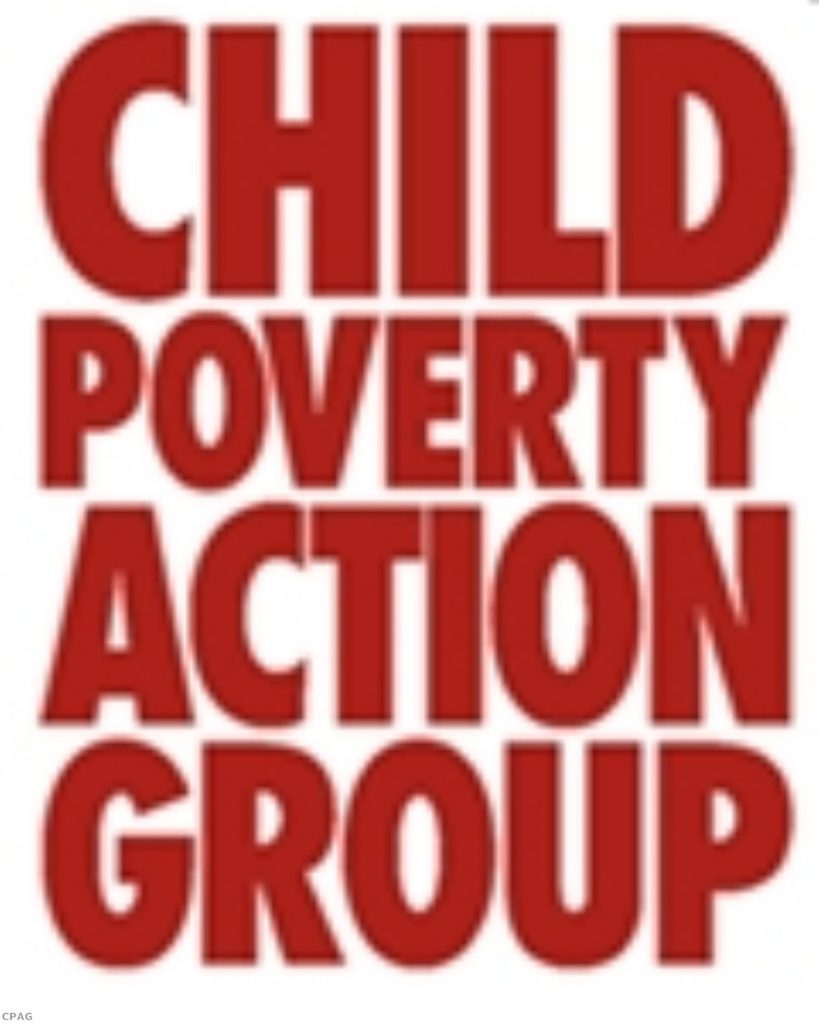CPAG: Autumn Statement: No short-changing of strivers or making poor pay for missed growth
Autumn Statement: No short-changing of strivers or making poor pay for missed growth
Today's Autumn Statement by the Chancellor is expected to contain a number of announcements affecting low income families.
CPAG is caling on the Chancellor not to short-change 'strivers' or to make the poor pay for missed growth. You can read our media statement here:
Autumn statement must not short-change strivers or make poor pay for missed growth
Commenting ahead of the Chancellor’s Autumn Statement, Alison Garnham, Chief Executive of Child Poverty action Group, said:
“We're looking for targeted help for families with children struggling to make ends meet as living costs rise."
“Ministers talk about helping the 'strivers', but the truth is that the 'strivers' keep being short-changed. The lowest paid families – often people working long hours with little pay – have been near the front of the queue for cuts as billions in tax credits that protect the low paid have been taken away from family budgets.
“These families are doing their best, are working hard but are finding that the government is making it harder for them to make ends meet.
“It is a matter of great concern that spending decisions keep on asking the poorest families to make more sacrifices when growth targets are missed, rather than those with broader shoulders.
“The Beveridge vision was that we could build our way to a new and prosperous society after the war, and it succeeded. We need the same sense of purpose today, to build and invest in the jobs, housing and childcare that will stimulate the economy and meet the needs of ordinary families.”
On the expectation that details of payment rates, taper rates and disregards for the new Universal Credit will be announced as part of the Autumn Statement, she said:
“Universal Credit will only work if you get the incentives right. We have already seen the amount of earnings that Universal Claimants can keep cut back from original plans. We need to see Universal Credit rates that ensure strong work incentives with adequate support for childcare and a disregard for second earners, or the system will prove to be a multi-billion pound dud.”
ENDS
Notes to Editors
Over 50 charities, NGOs, unions and academic have written an open letter, warning the Chancellor that further cuts to welfare would be “a tragedy for millions” and would harm economic growth. The full text of the letter and full list of signatories is linked to here.
The Shadow Secretary of State for Social Security in 1998, Iain Duncan Smith said in a parliamentary debate on uprating of benefits:
“As the Minister of State said, the annual uprating order is an opportunity to talk about the detail of this matter. Clearly, it is a straightforward and traditional uplift in line with two measures of inflation, and it would therefore be wrong for anybody in the House to try to block it. It deals with those in need, and it is only fair that those payments should be made at the earliest opportunity. I therefore welcome the order and make no bones about it.”
http://hansard.millbanksystems.com/commons/1998/feb/18/social-security#S6CV0306P0_19980218_HOC_271
Unemployment benefits have been on a steady decline in value relative to earnings for several decades, as shown in the chart below.
The Office for National Statistics has this week published research showing that richest 10% in Britain have a total combined wealth of £4.5 trillion, whilst the poorest 50% only have a total of combined wealth of £1 trillion. This suggests that options could be considered for greater contributions from the wealthiest as an alternative to cutting essential services and social security for the poorest. The ONS research is here: http://www.ons.gov.uk/ons/dcp171776_289407.pdf
The IMF gave a clear warning to the Chancellor in their World Economic Outlook report in October that cuts to social security are destabilising our fragile economy:
“Automatic stabilisers should be allowed to play freely”.
(p.xviii, World Economic Outlook October 2012: Coping with High Debt and Sluggish Growth, IMF)
‘Economic stabilisers’ are social security payments, and wage and housing subsidies (tax credits and housing benefit) that rise when labour markets are weak and wages stagnate during economic crises. They help protect a struggling economy from a collapse in demand that would cause a domino effect of further job losses and reduction in output. So the stabilisers help keep businesses afloat, keep people in work, and provide social protection preventing longer term costs to government – e.g. increased demand on NHS from ill health associated with destitution.
The IMF has also in the World Economic Outlook report warned that the UK and other countries have dangerously underestimated the fiscal hindrance that cuts are having – the extent to which cuts can cause reduction in economic output. The UK had been using a multiplier of 0.6 to estimate the extent to which welfare cuts would decrease economic activity – i.e. if £10 billion is cut from social security, benefits and tax credits then GDP will decrease by £6 billion. However, new analysis by the IMF of the cuts made so far has led them to discover that the multiplier is between 0.9 and 1.7. This implies that a total of £30 billion of benefit cuts will shrink the economy by at least £27 billion and perhaps as much as £50 billion (or 3.6% of GDP).
CPAG is the leading charity campaigning for the abolition of child poverty in the UK and for a better deal for low-income families and children.
CPAG is the host organisation for the Campaign to End Child Poverty, which has over 150 member organisations and is campaigning for public and political commitment to ensure the goal of ending child poverty by 2020 is met.
For further information please contact:
Tim Nichols
CPAG Press Officer
Tel. 020 7812 5216 or 07816 909302





-01.png)